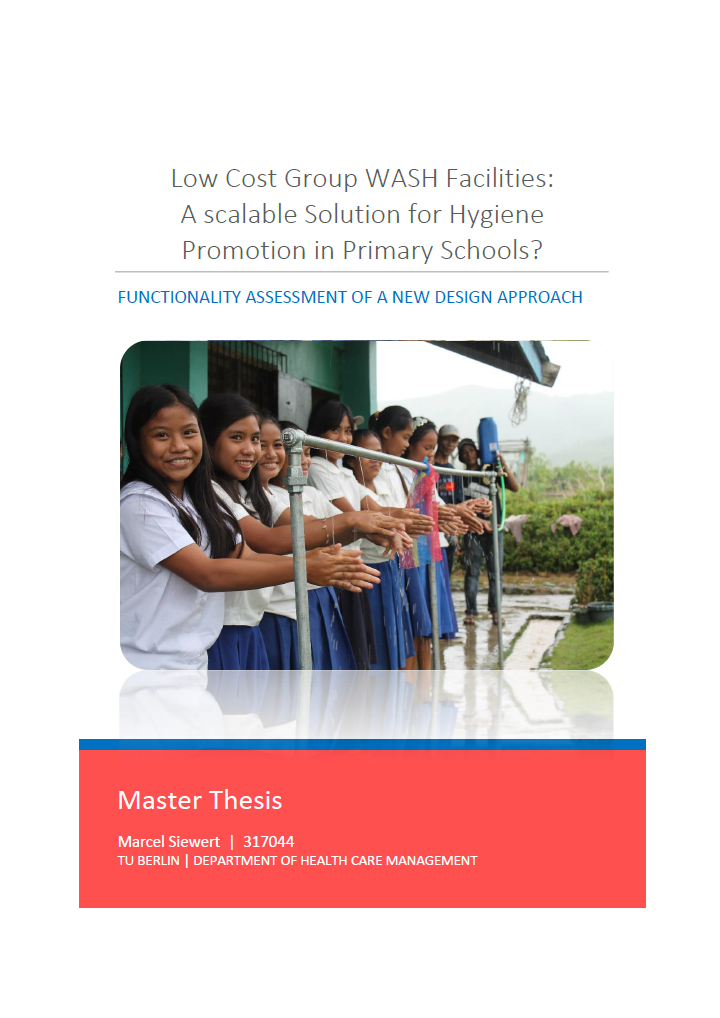Low Cost Group WASH Facilities: A scalable Solution for Hygiene Promotion in Primary Schools? Functionality Assessment of a new Design Approach Siewert, M. (2015)
Bibliographic information
Siewert, M. (2015). Low Cost Group WASH Facilities: A scalable Solution for Hygiene Promotion in Primary Schools? Functionality Assessment of a new Design Approach TU Berlin, Department of Health Care Managemet
Filter / Tags
Recommended by SuSanA (other than SuSanA publications)SchoolsPoliticians and local decision makersPractitionersEnglish
Downloads
Low Cost Group WASH Facilities: A scalable Solution for Hygiene Promotion in Primary Schools?
Type: application/pdf
Size: 3.24 MB

